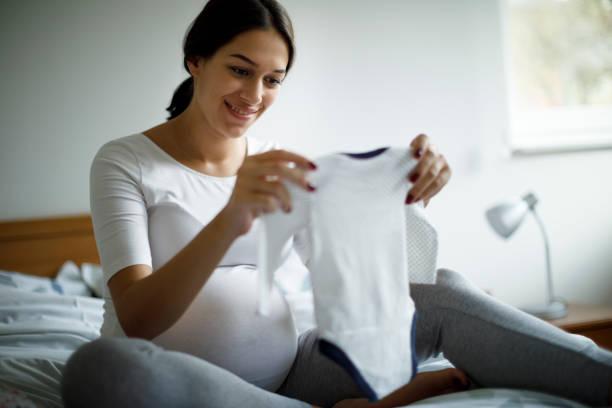CarePlus Pharmacy has issued a checklist of basic items it recommends parents have on hand to help care for their new arrivals. It’s been compiled by Cormac Spooner, who runs Spooner’s CarePlus Pharmacy in Templeogue in Dublin, along with his wife Eleanor.
The first few months of a baby’s life can pose huge challenges for parents, from feeding to sleeping to managing what they need to bring on a family day out. Cormac and Eleanor, who recently welcomed their second baby, are ideally placed to share their knowledge, based on a combination of both professional advice and life experience.

Cormac says most parents are amazed at the variety of equipment they might be advised to have for their baby, from changing tables to travel systems, muslin cloths to sterilisers and more. However, the good news is there are only a few essential tools to have in the medicine cabinet:
Cotton wool:
Many experts recommend using cooled, boiled water and cotton wool for cleaning baby in the very first days of their lives. Whatever you choose cotton wool in balls, pads or pleats is a great item to have on hand.
Wipes:
Like so many things in baby care, there are multiple options available when it comes to wipes. Some people prefer to stick with cotton wool, while the convenience of a pack of wipes is a major advantage for others. You can select from a range that will offer options on the materials used, the type of liquid on the wipes, and of course whether you want an added fragrance, moisturiser, etc. When using any wipes or product for the first time, I’d recommend keeping an eye on baby’s skin to see if any irritation occurs and go from there.
Baby nail clippers:
This is vital. You can’t imagine how tiny those nails are until they’re wrapped around your thumb, and you really need the right tool for the job.
Baby sponge:
Something very soft for the most delicate skin. When choosing the right sponge, consider the material it's made from, whether it will dry quickly after use, whether it’s easy to clean and how gentle it will be on your baby’s skin.
Next, Cormac says, are the creams you need for baby’s skin. “These can vary according to the type of nappies / clothing you’re using and any sensitivity you’ve seen in your baby’s skin, so you can always ask your community pharmacist for advice. The basic ones I recommend having on hand are”:
Barrier cream:
This does what it says - forms a protective barrier for skin against any sources of irritation, such as moisture in a nappy. Most babies will get nappy rash at some stage and an inexpensive barrier cream is a simple way both to prevent and treat it if it does develop.
Moisturising cream:
You’ll very quickly learn what your baby’s skin can and can’t tolerate so having a mild cream to hand will be very helpful.
Cream for dribble rash:
This is usually a mild problem and it’s extremely common. A very gentle cream will treat the irritation it can create, but if the skin becomes very raw a community pharmacist can offer advice on the next step.
Cream for cradle cap:
Managing cradle cap usually involves a combination of removing flaky skin and gently moisturising what’s underneath, to support the new skin coming through.
Finally, Cormac says there are a couple of medical items parents should have as part of their kit.
Vitamin D drops:
The HSE has a range of recommendations about vitamin D supplements for children and it varies according to the child’s age and whether you’re breastfeeding or using formula - you can check out the latest updates on hse.ie. Each community pharmacist can also advise customers about the appropriate option for them, which can vary according to the type of feed a baby or small child is having.
Liquid paracetamol, such as Calpol:
Vaccinations can cause babies to feel under the weather, creating soreness at the site of the injection and sometimes a mild fever which can make them irritable. Liquid paracetamol is an excellent remedy for these symptoms, but make sure you speak to your pharmacist before using any medicinal product for the first time and always ensure you have the right formula for your baby’s age.
Overall, Cormac says, one of the most important things when it comes to baby’s health is a parent’s instinct: “No-one will know your baby as well as you so if you are concerned, speak to your pharmacist or GP. Parenting a newborn or small baby is tough enough without feeling alone. Your community pharmacy team has seen it all so we’ll be able to help with a remedy or point you in the direction of further help or support, and you can always speak to us in confidence and privacy if you prefer”.







